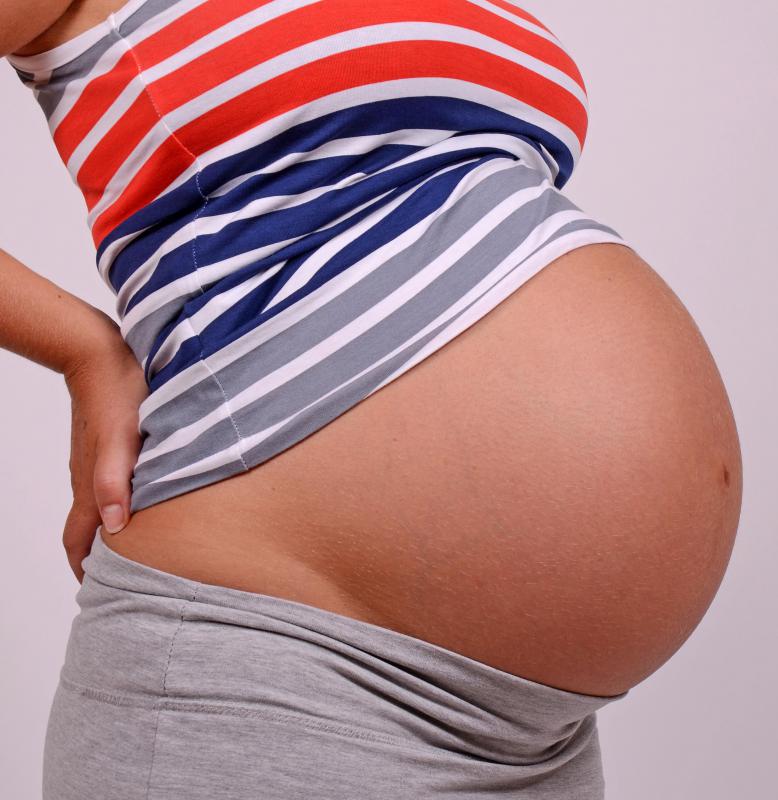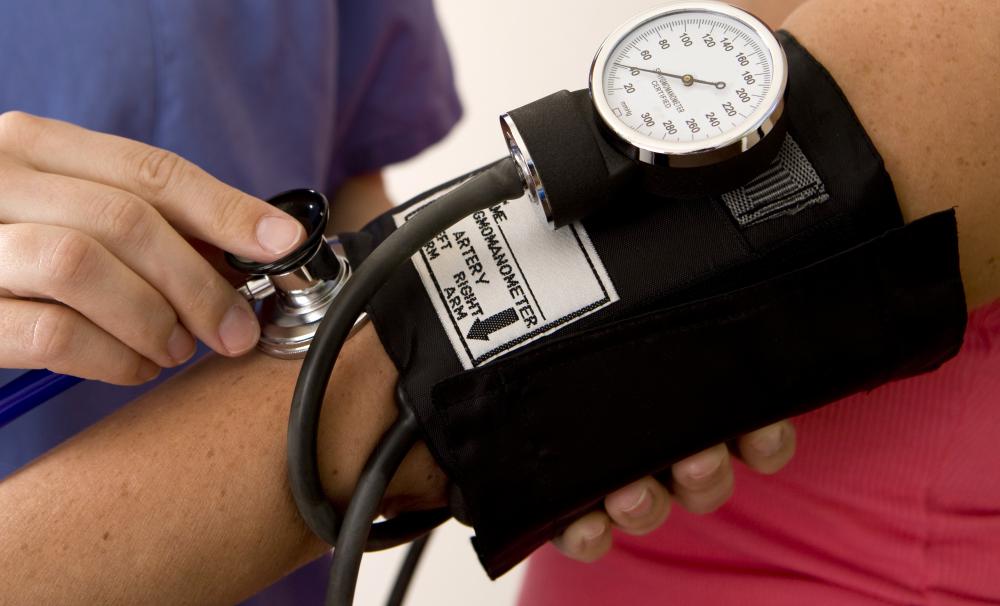At TheHealthBoard, we're committed to delivering accurate, trustworthy information. Our expert-authored content is rigorously fact-checked and sourced from credible authorities. Discover how we uphold the highest standards in providing you with reliable knowledge.
What are the Different Ways to Treat Dizziness in Pregnancy?
Different ways to treat dizziness in pregnancy include increasing fluid consumption, resting, and controlling elevated blood pressure. Typically, fluctuations in levels of estrogen and other hormones can cause dizziness and nausea. In addition, many pregnant women experience elevations in blood pressure, so being aware of sodium consumption and taking prescribed medication can control pregnancy-induced high blood pressure and resultant dizziness. In addition, vomiting is common in early pregnancy, which can contribute to dehydration and dizziness, so drinking more fluids can counteract dehydration-related dizziness.
Dizziness in pregnancy can also signify low levels of potassium, magnesium, and blood glucose. Sometimes a condition called gestational diabetes can occur during pregnancy. Typically, gestational diabetes resolves after delivery, however, sometimes it becomes chronic. Following a physician-recommended diet plan and adhering to a medication regimen can stabilize blood sugar and relieve symptoms of dizziness, lightheadedness, and loss of appetite. When dizziness becomes persistent and disruptive, further testing might be indicated, such as blood tests to determine electrolyte levels.

Although not generally a risk to the unborn baby, dizziness during a pregnancy can signal a potentially serious condition. When kidney function declines, toxins can build up in the bloodstream and cause symptoms such as dizziness, nausea, and fluid retention. In addition, abnormal kidney function during pregnancy can contribute to high levels of protein in the urine, which needs to be treated. Occasionally, if dizziness in pregnancy becomes extreme, the patient might be placed on bed rest until symptoms subside. It might also be advisable to refrain from driving during an acute episode.

High blood pressure, or hypertension, is common during pregnancy because blood volume increases and fluid retention causes elevations in blood pressure. Low blood pressure, however, can also contribute to dizziness in pregnant women. Treatment for low blood pressure in pregnancy includes medication to raise blood pressure and sometimes hospitalization so that fluids can be administered intravenously. Sometimes, other nutrients such as sodium, magnesium, potassium, and calcium are added to the intravenous solution to raise the blood pressure if these levels are abnormally low. As blood pressure increases to normal levels, dizziness generally subsides.

Rarely, dizziness in pregnancy can signify loss of blood. As a patient loses significant amounts of blood, anemia can occur and cause dizziness. In these cases, further testing such as ultrasound might be warranted. In addition, further testing of blood might be warranted, as this condition might be an early induction of labor. Excessive bleeding during pregnancy is a medical emergency, and when the baby is nearing full term, the physician might elect to induce labor so that the mother can be treated more aggressively for bleeding.
AS FEATURED ON:
AS FEATURED ON:














Discussion Comments
My 33 year old daughter is 15 weeks pregnant. She and her husband went to Jamaica for the past week. The last few days there she became extremely dizzy and couldn't stop vomiting. They went to a local clinic there and she was given anti-nausea meds. She's home now and has seen her ob-gyn doctor. She continues to be dizzy all the time. She can't drive, exercise or even walk in a straight line.
She said later yesterday and today she didn't need to take the anti-nausea med. Her doctor said to see an ENT doctor if this doesn't stop within a week. Her ob-gyn doctor seems to think it will just go away. I'm an RN. I'm concerned. We live in the Philadelphia, PA area, and our daughter and husband live in Denver, CO so we can't just see her whenever we'd like. Just how common is this during pregnancy? I'm wondering if she could have gotten a parasite while in Jamaica.
Post your comments